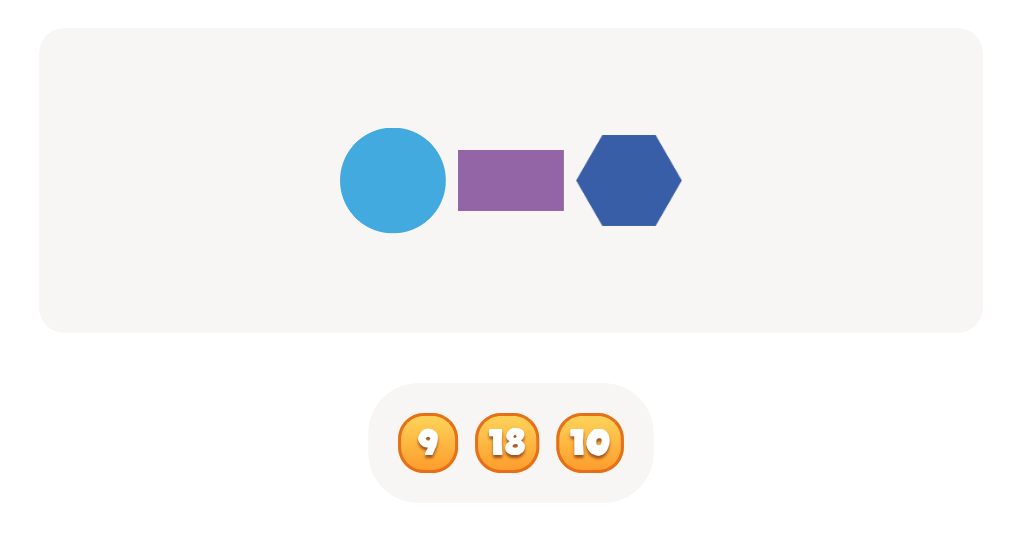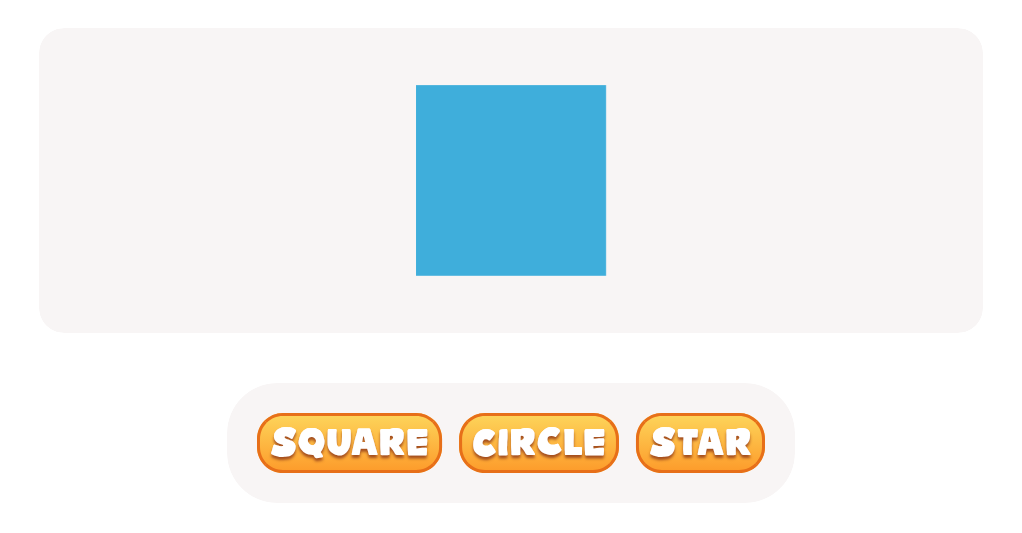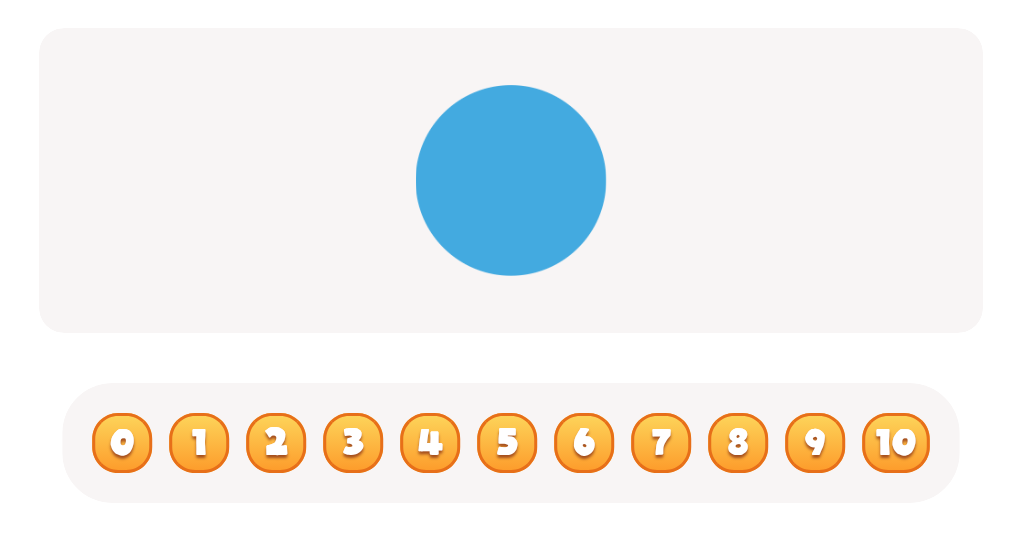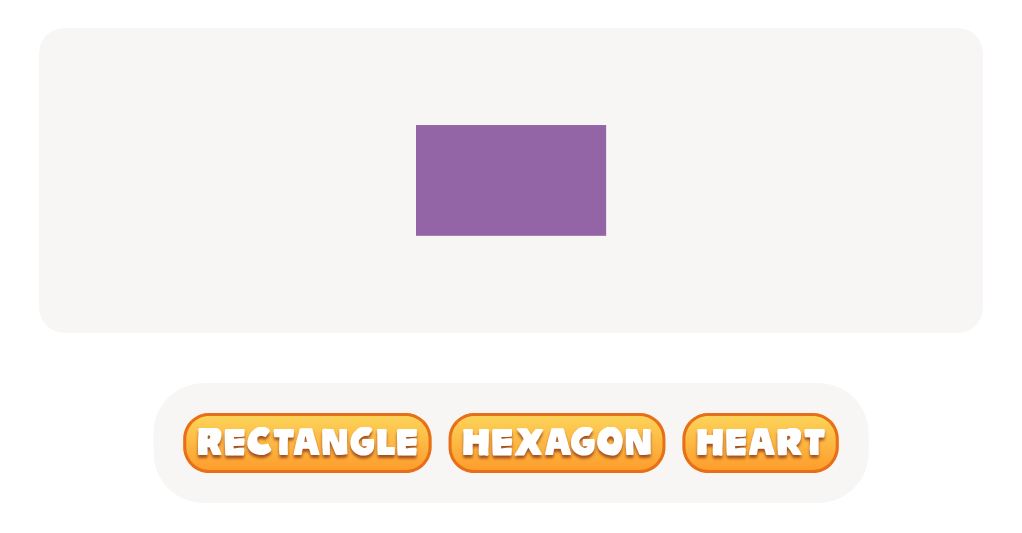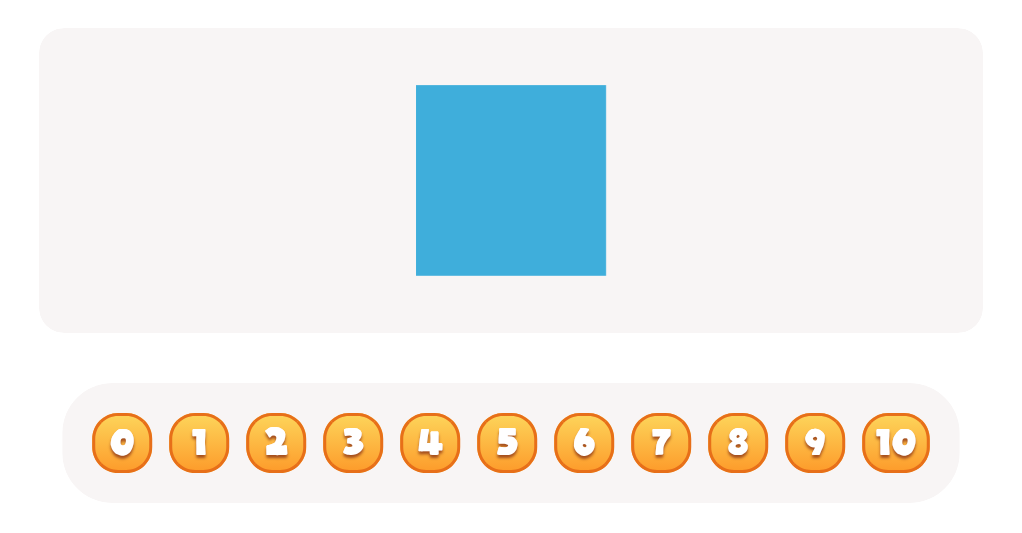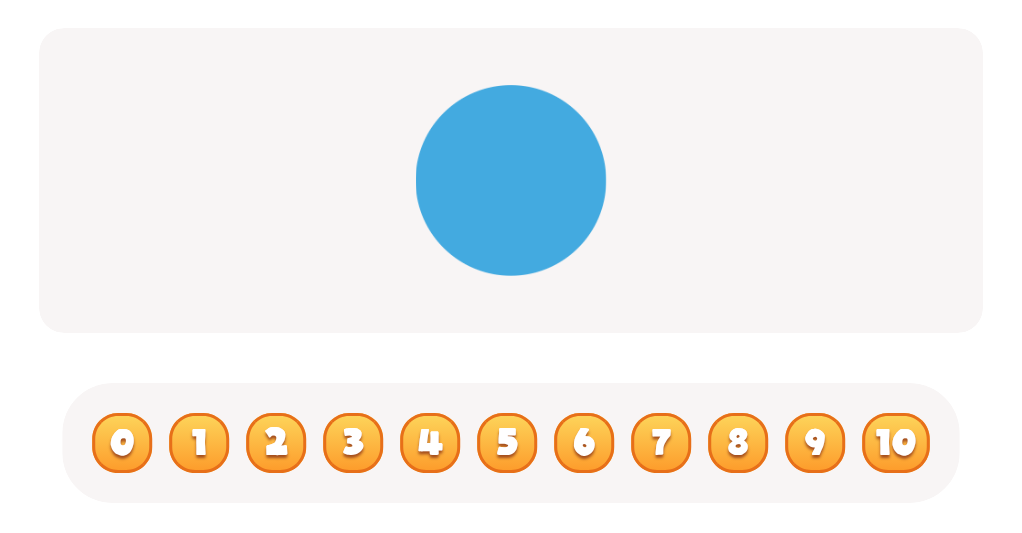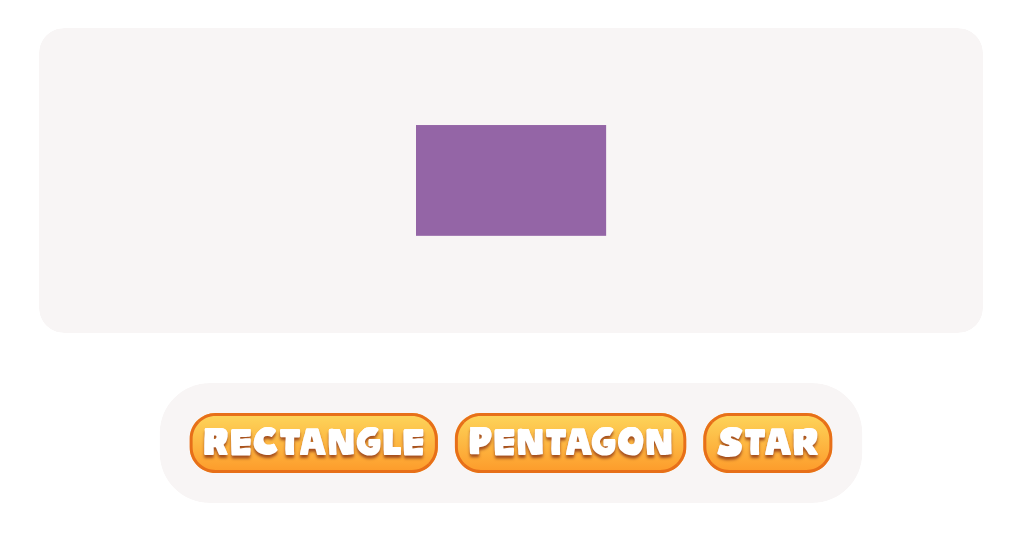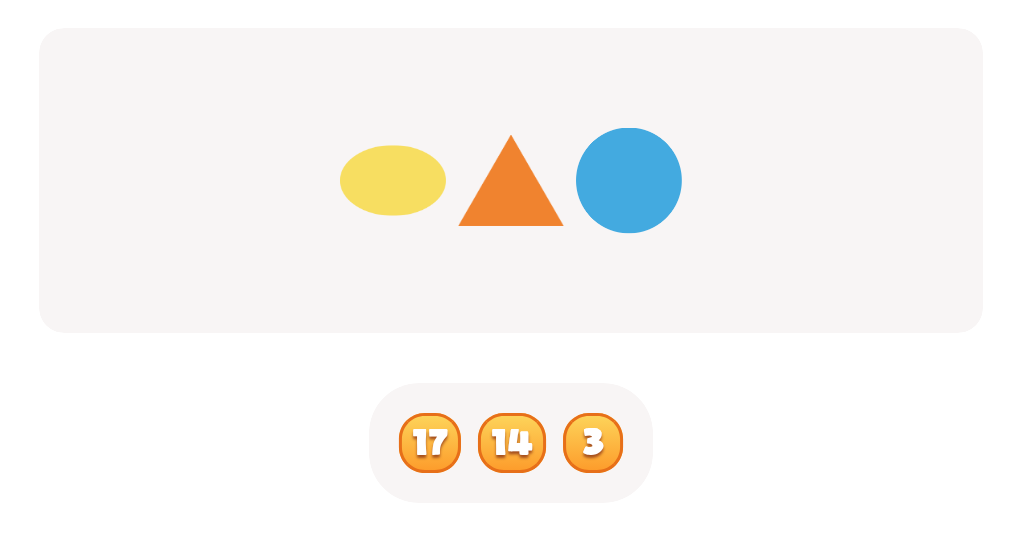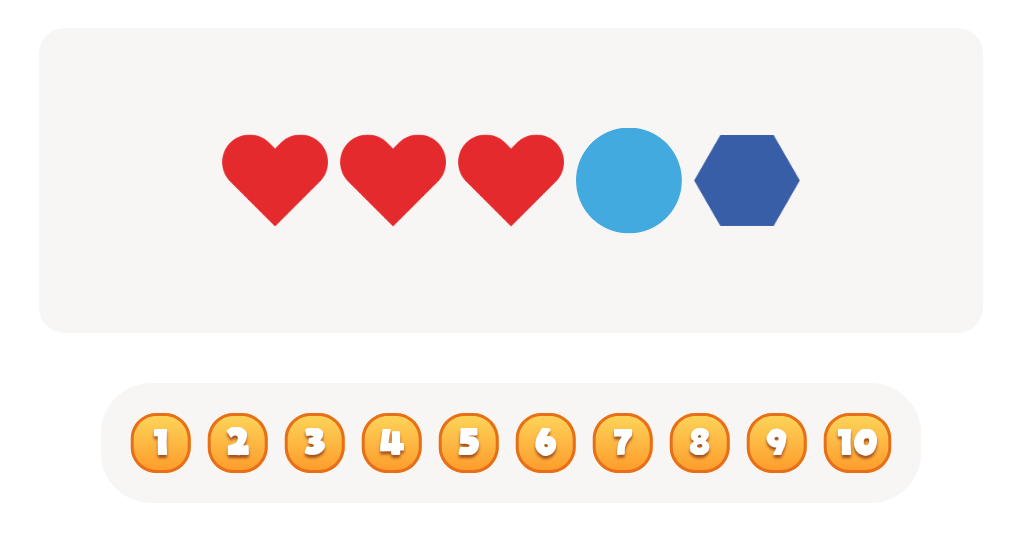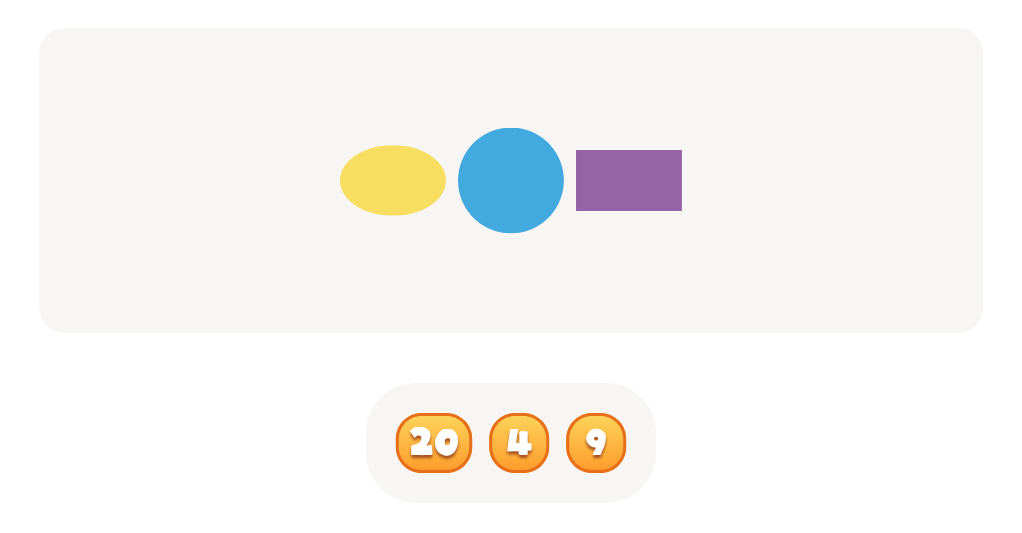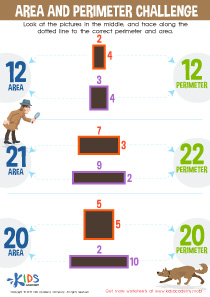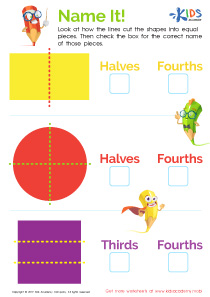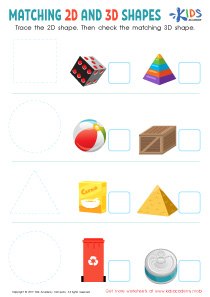Shape Recognition 2D Shapes Worksheets for 5-Year-Olds
23 filtered results
-
From - To
Welcome to our "Shape Recognition 2D Shapes Worksheets" designed specifically for 5-year-olds! Our engaging and interactive worksheets are perfect for helping young learners identify and understand various 2D shapes, including triangles, circles, squares, and rectangles. Each worksheet offers fun and simple activities that promote shape recognition, critical thinking, and fine motor skills. Ideal for parents and teachers, these resources foster a love for learning through colorful illustrations and hands-on exercises. Download our Shape Recognition worksheets today and watch your child gain confidence in their understanding of shapes while having fun in the process! Explore and discover the world of shapes!
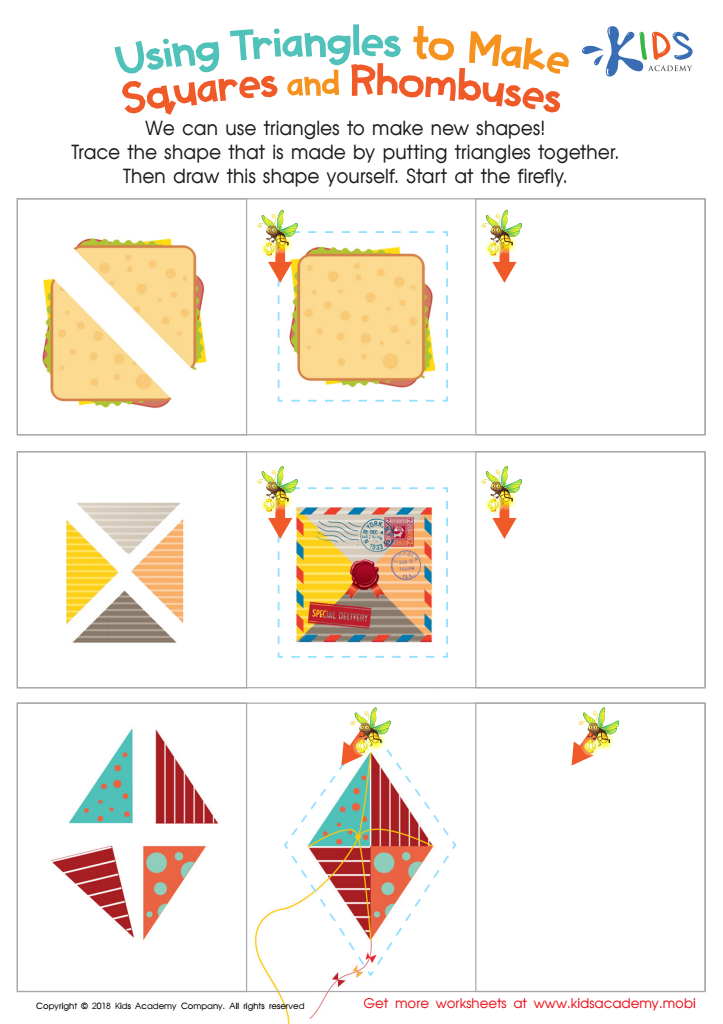

Using Triangles to Make Squares and Rhombuses Worksheet
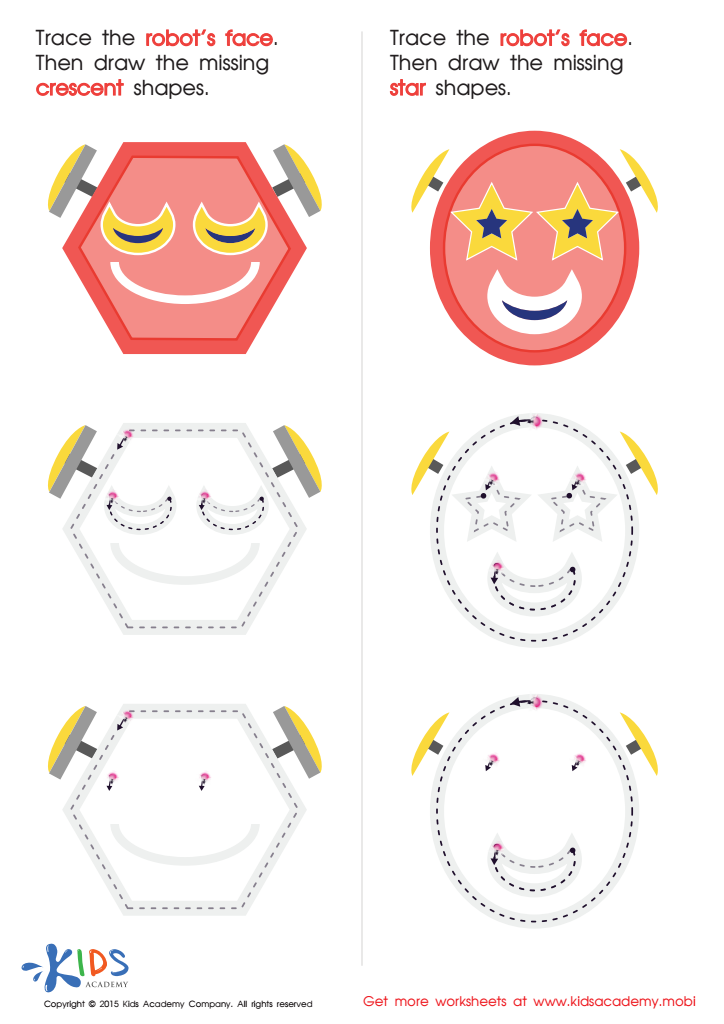

Composing a Robot's Face of Crescents And Stars Worksheet
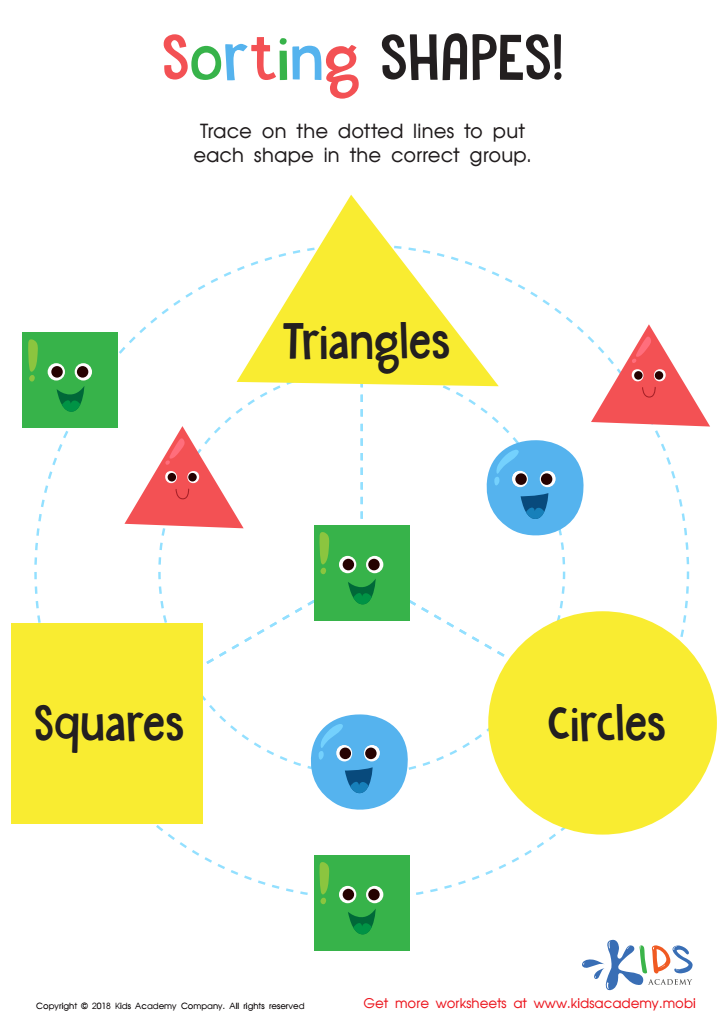

Sorting Shapes - Part 3 Worksheet
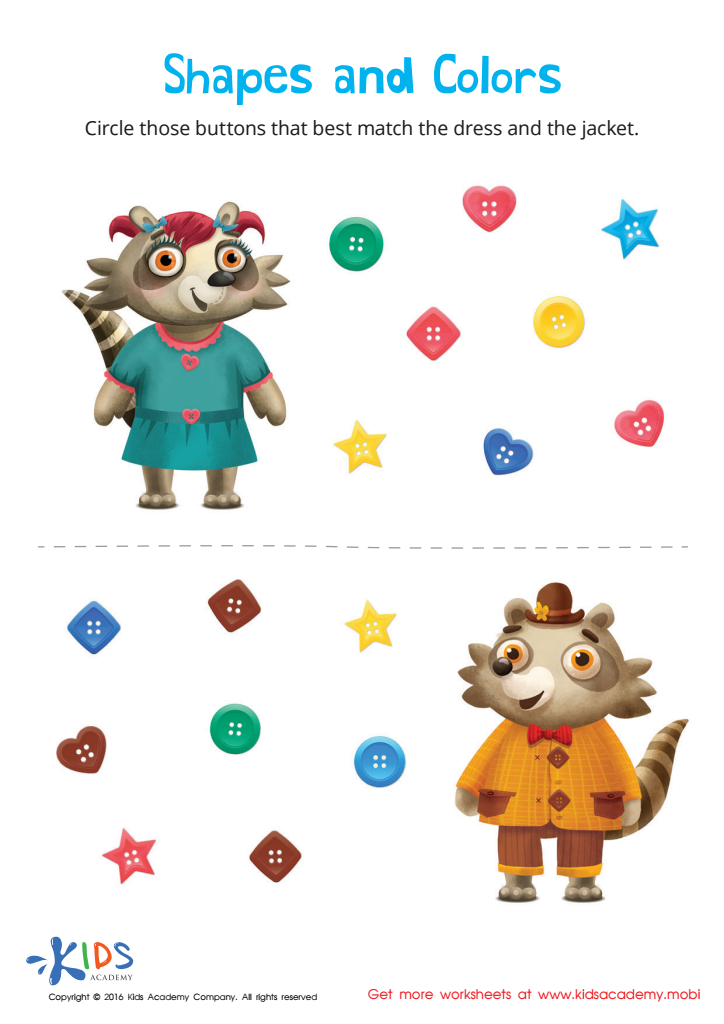

Matching: Shapes and Colors Worksheet
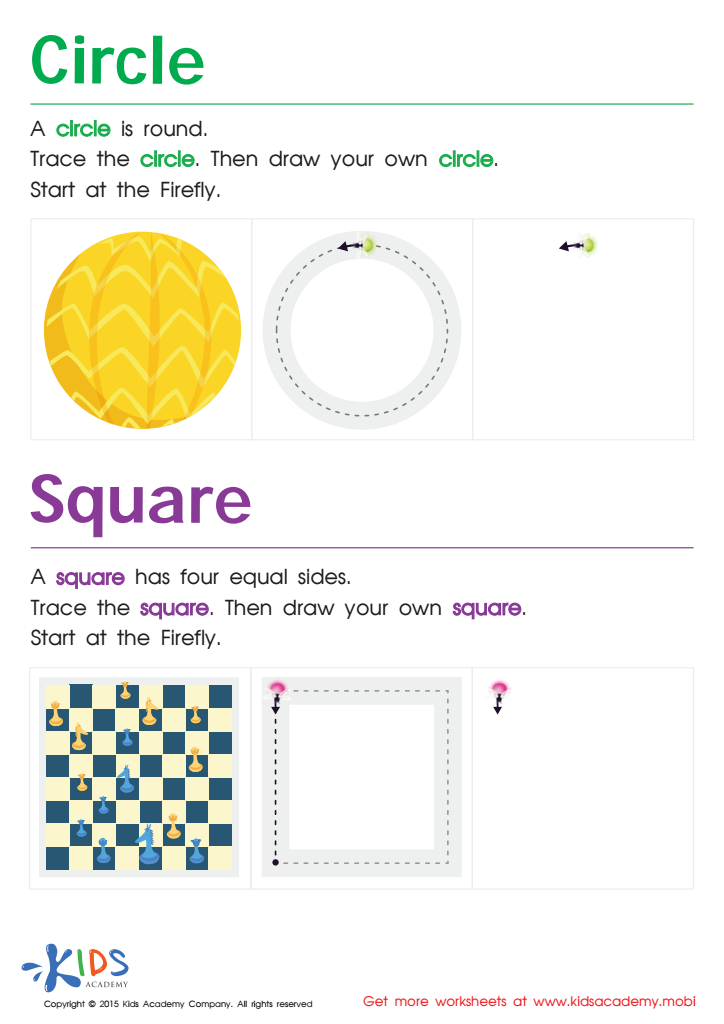

Trace And Draw a Circle And a Square Worksheet
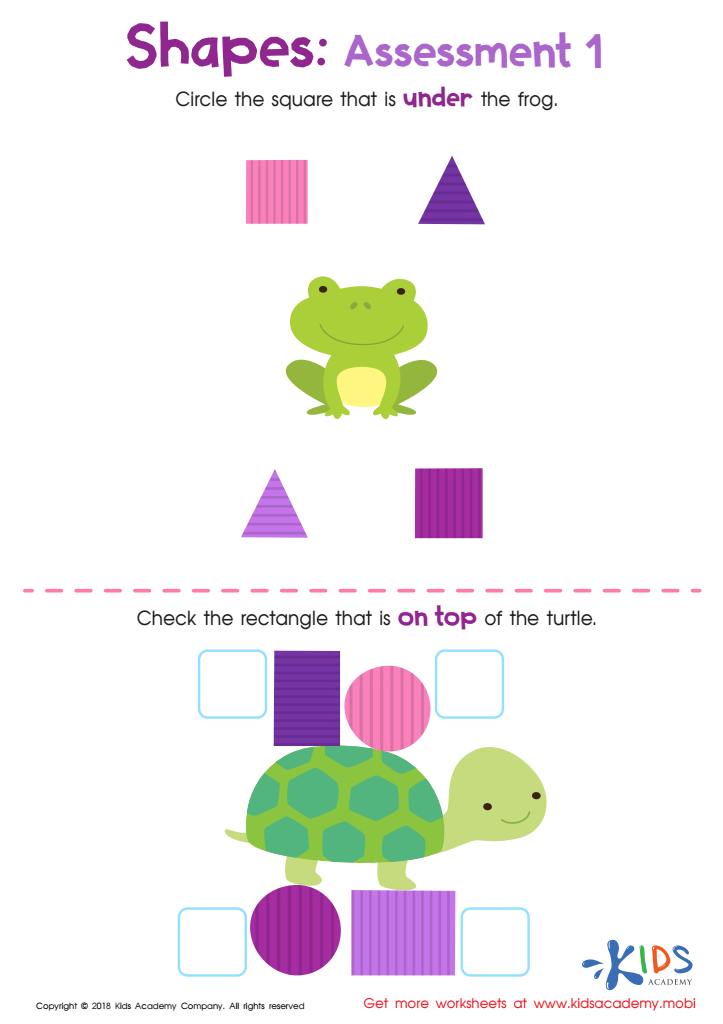

Geometry – Assessment 1 Worksheet
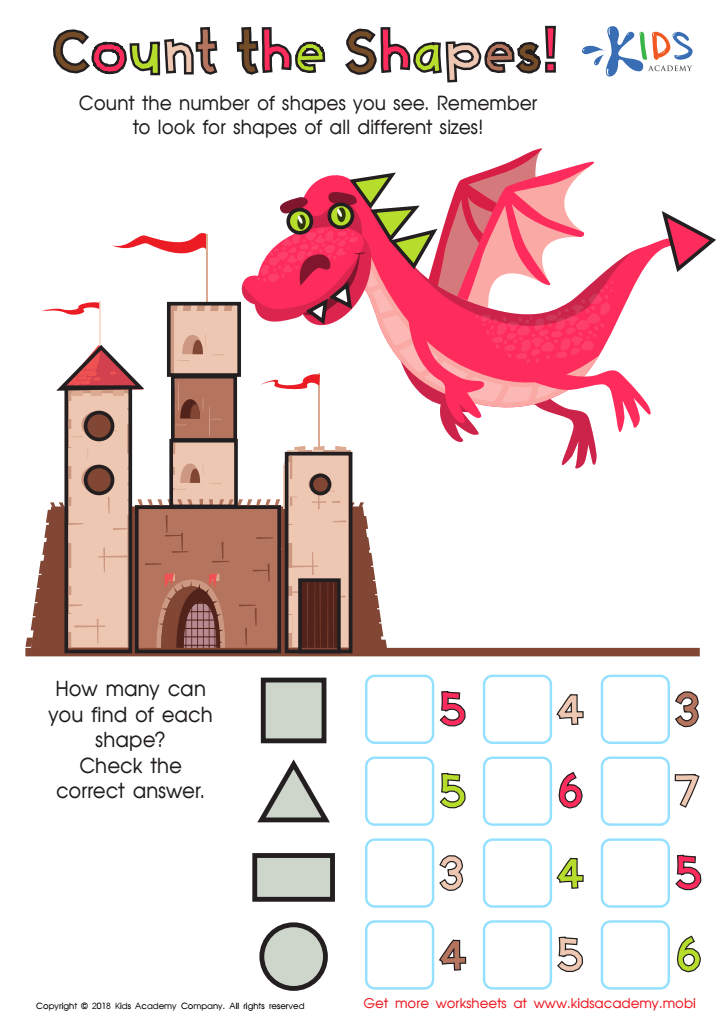

Count the Shapes Worksheet
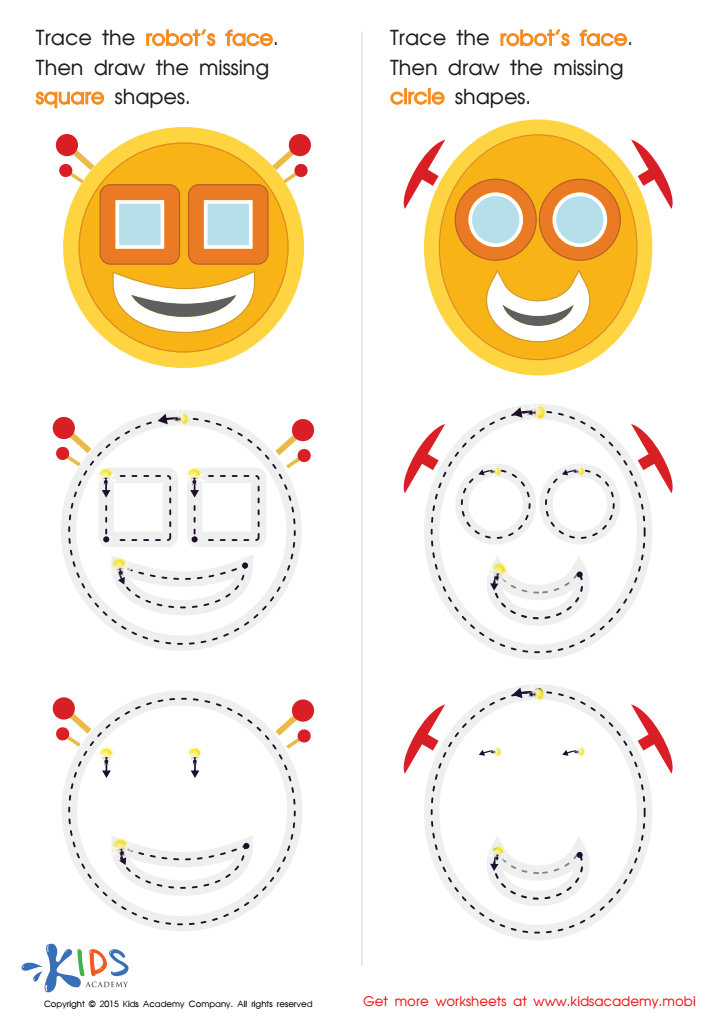

Practicing to Draw Circles And Squares Printable
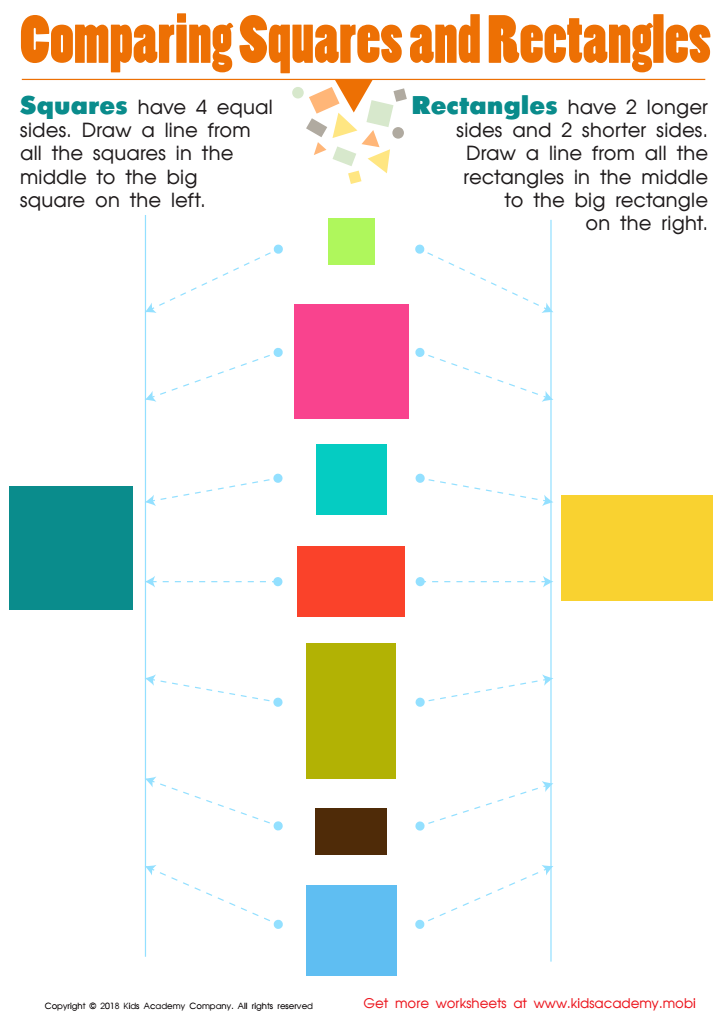

Comparing Squares Rectangles Worksheet
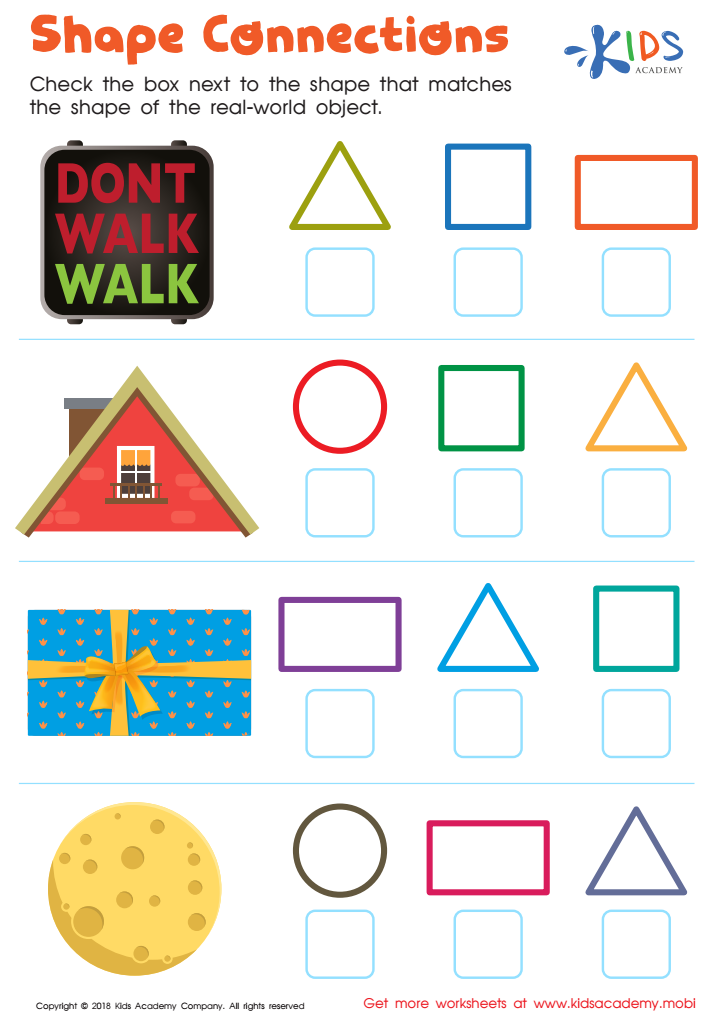

Shape Connections Worksheet
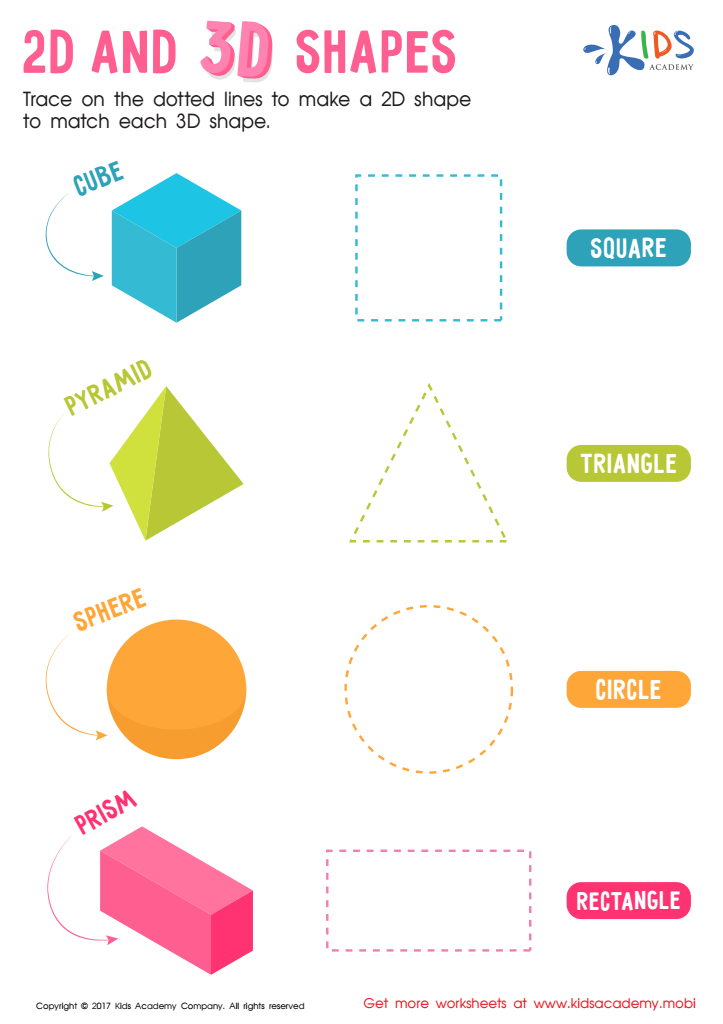

2D and 3D Shapes Worksheet
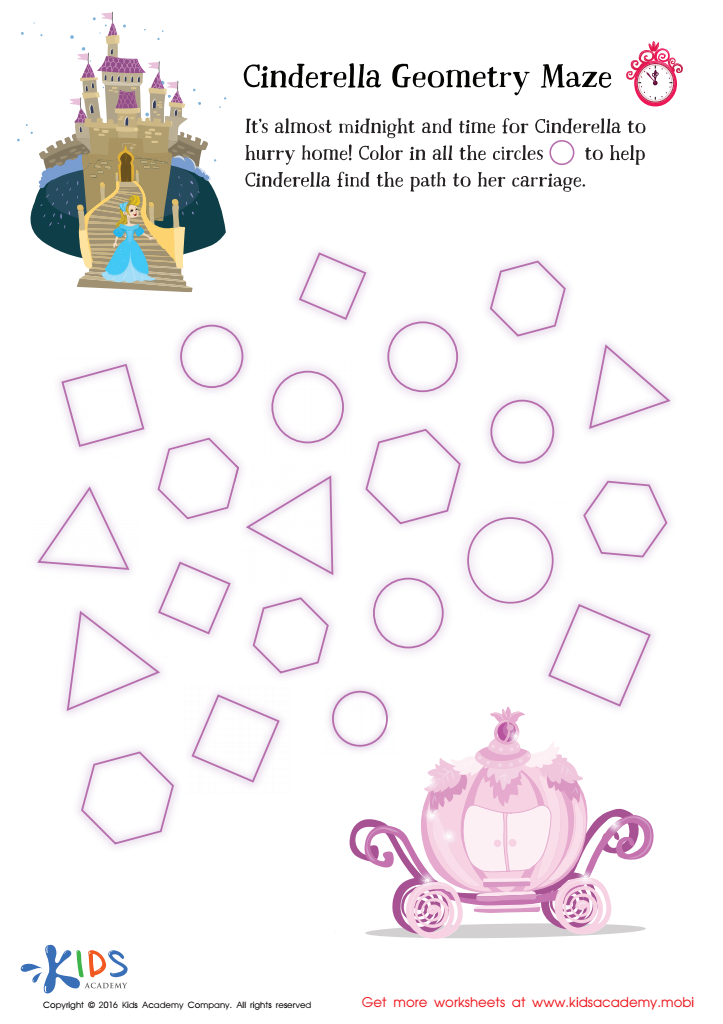

Cinderella Geometry Maze Worksheet


Preschool Geometry Match Up Worksheet
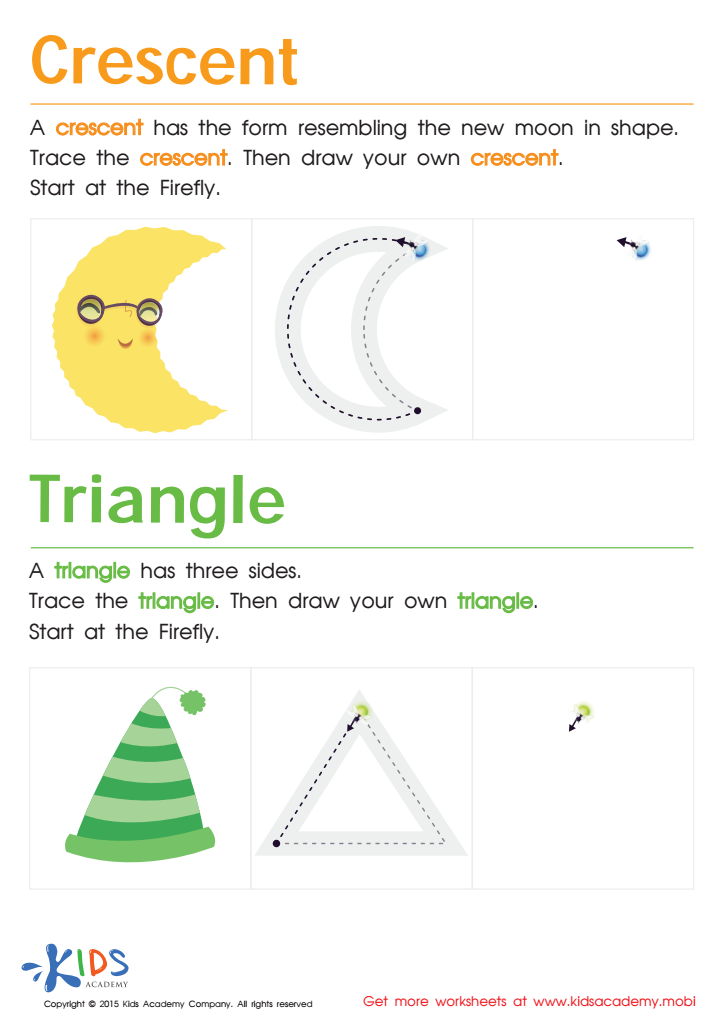

Learning to Draw Crescents And Triangles Worksheet
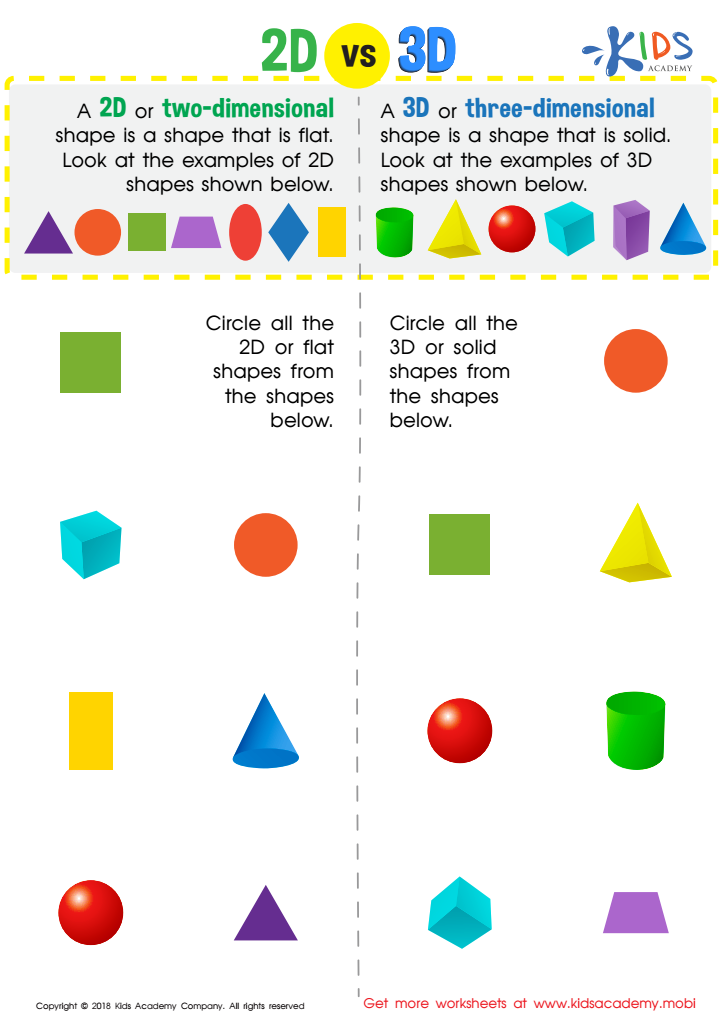

2D vs 3D Shapes Worksheet
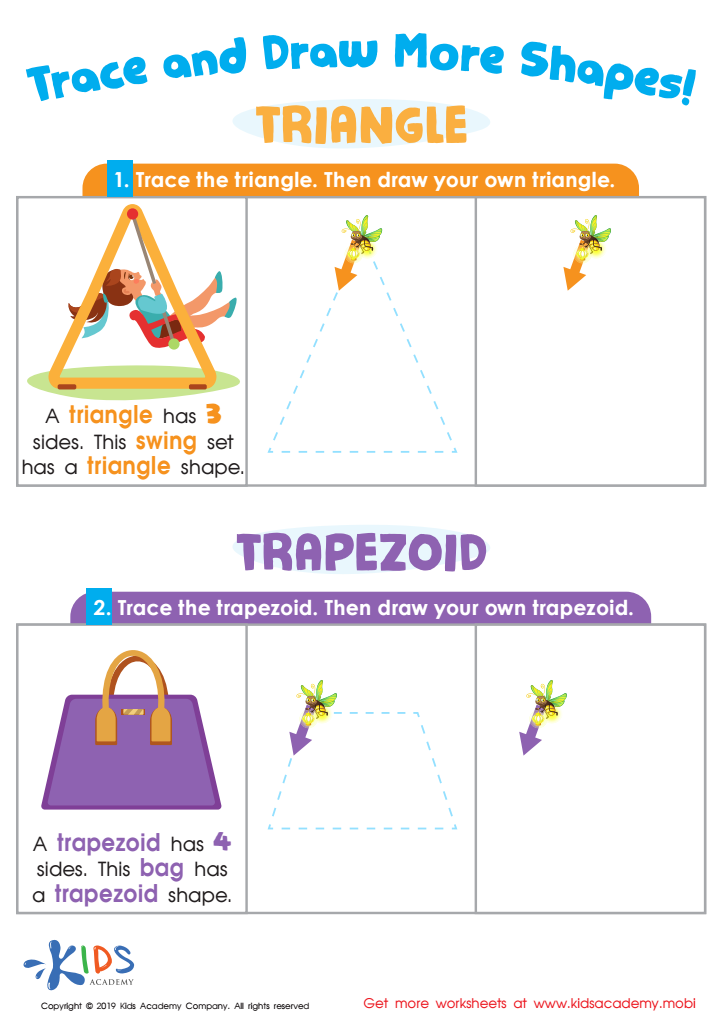

Trace and Draw More Shapes Worksheet
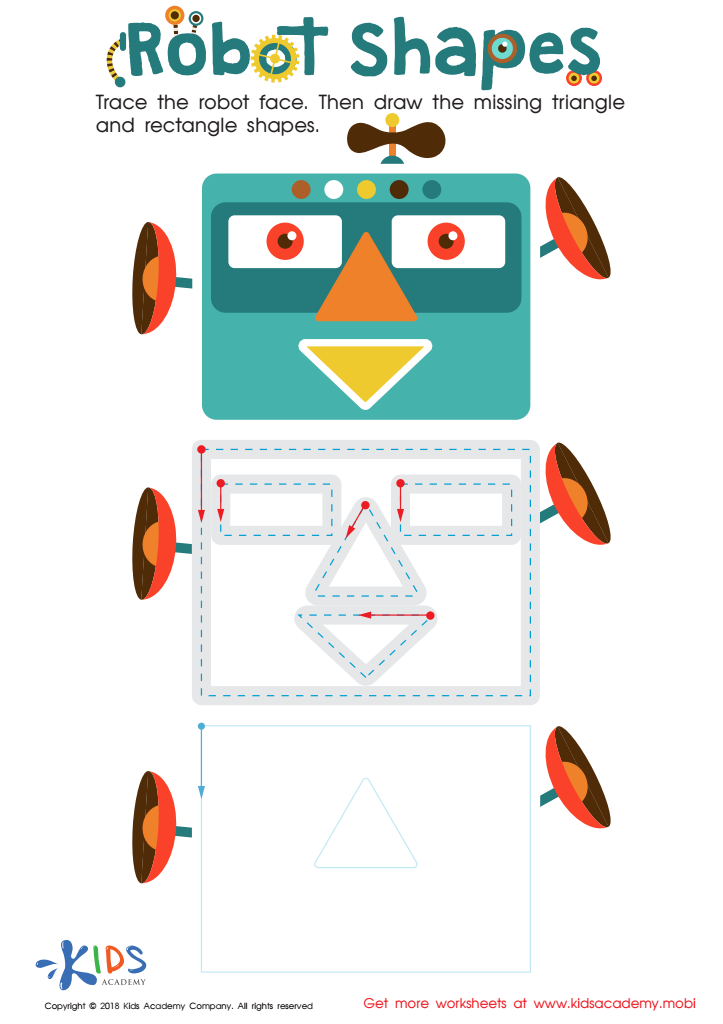

Robot Shapes Worksheet
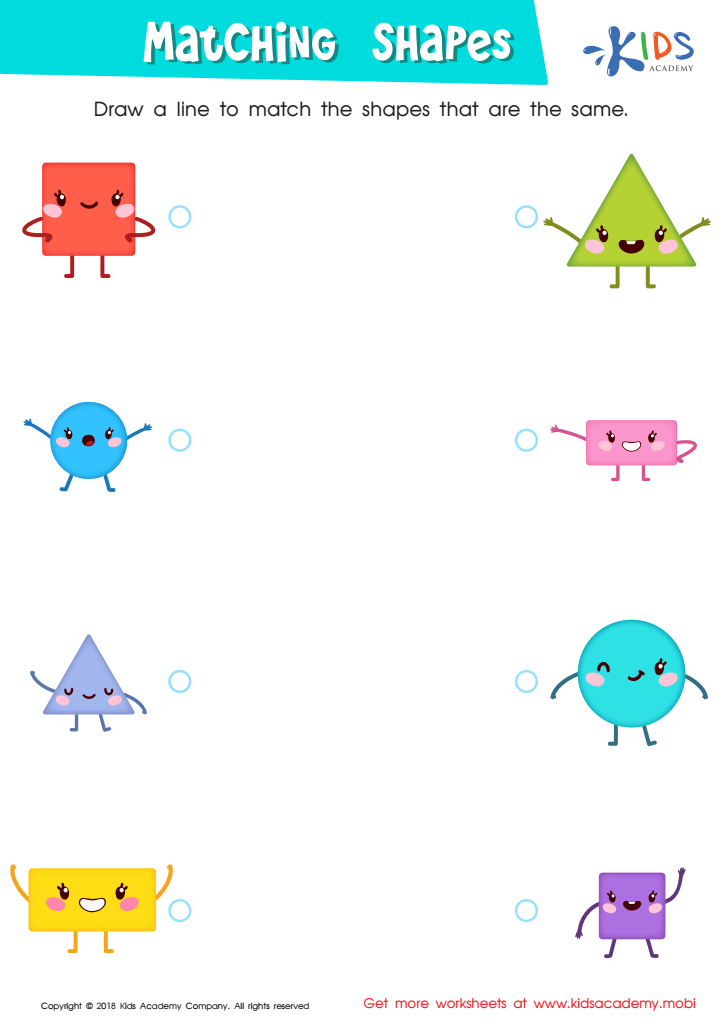

Matching Shapes Worksheet
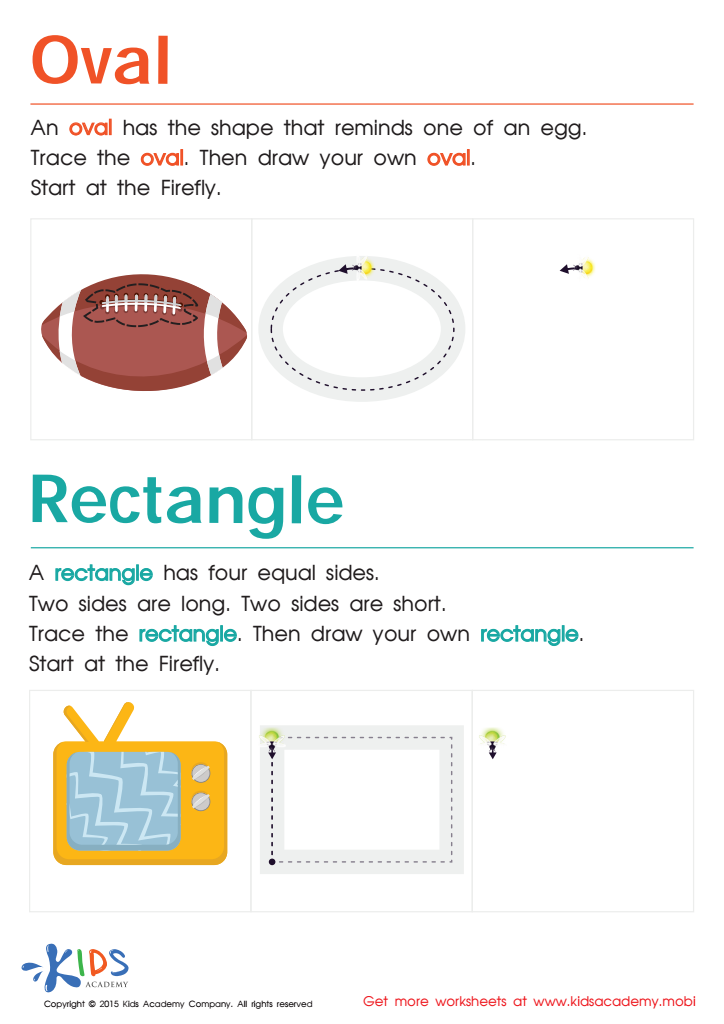

Easy Drawing of Ovals And Rectangles Worksheet
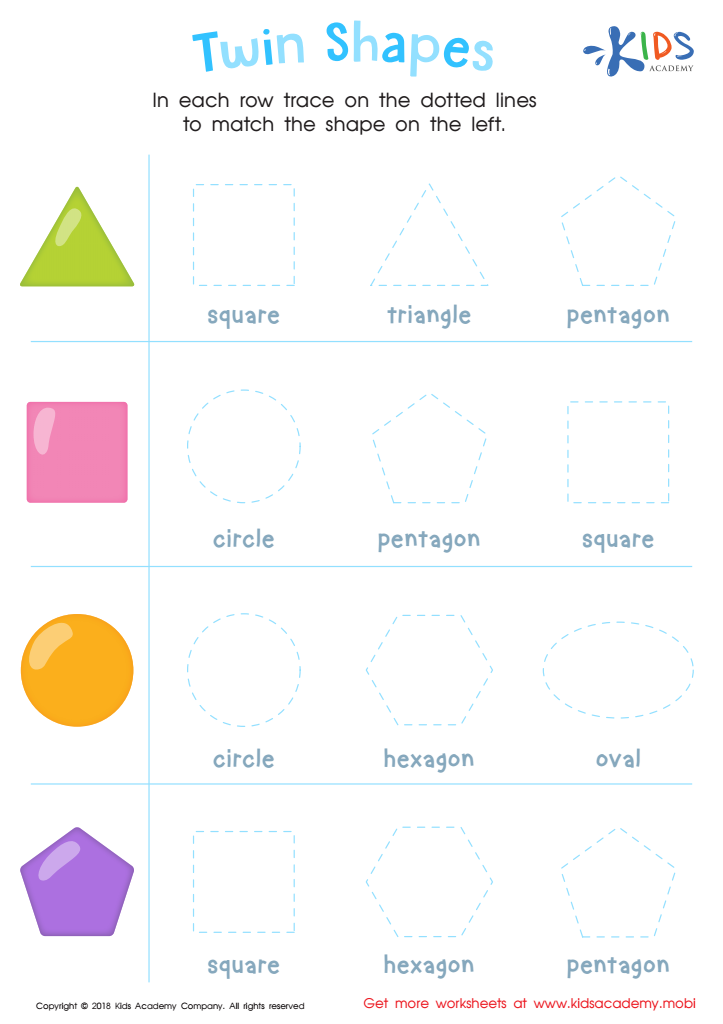

Twin Shapes Dot-to-Dot Worksheet
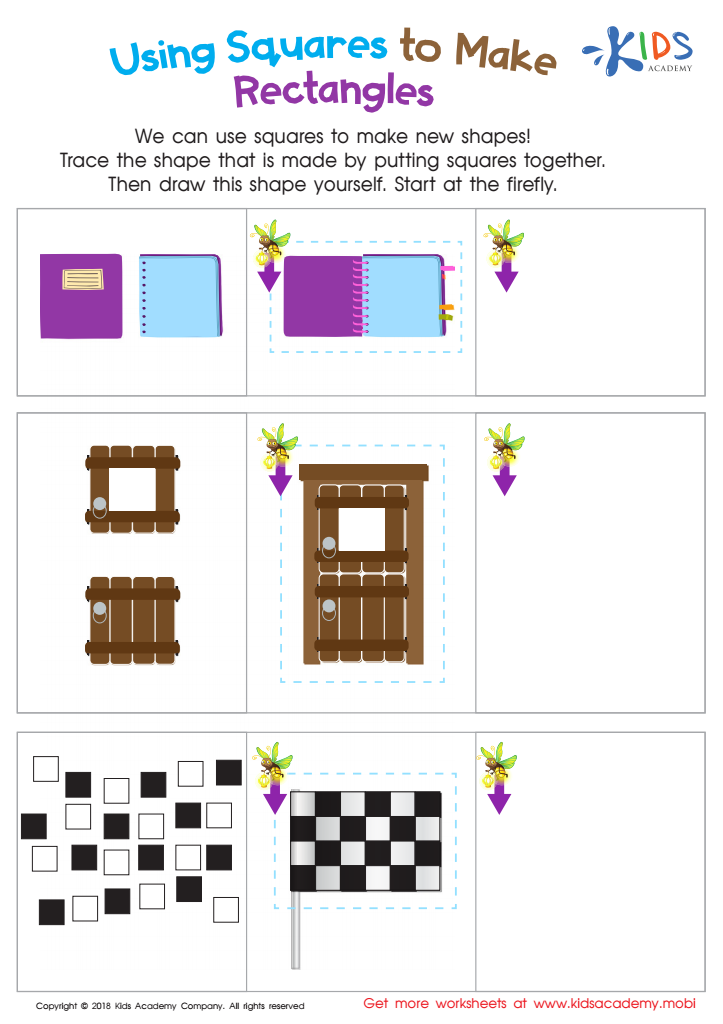

Using Squares to Make Rectangles Worksheet
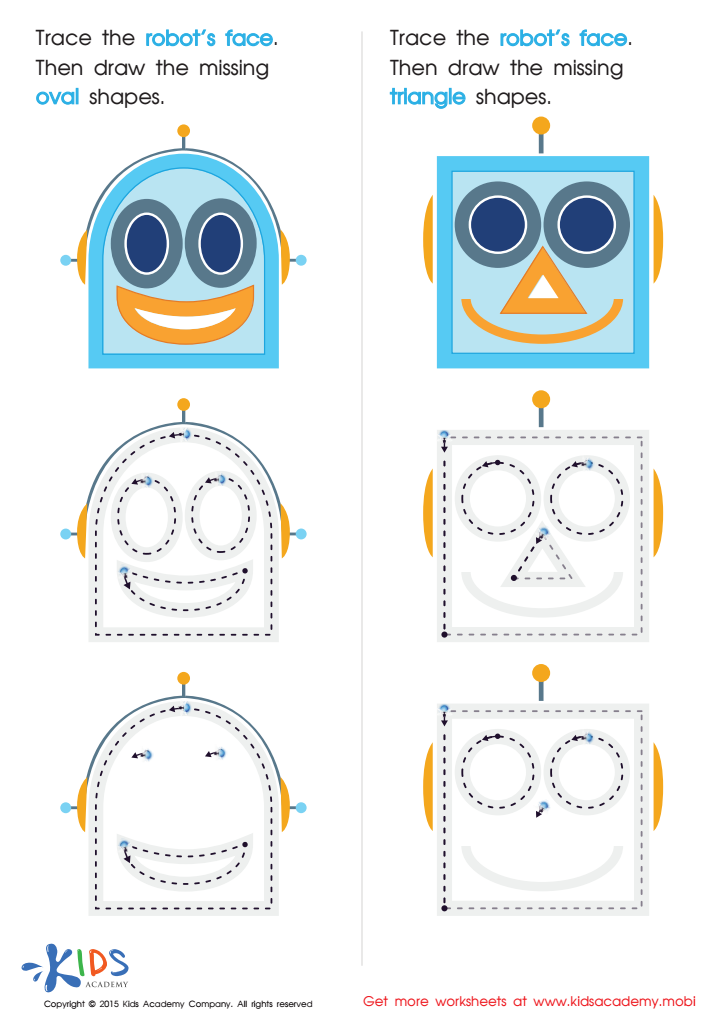

Drawing Ovals And Triangles with Fun Printable
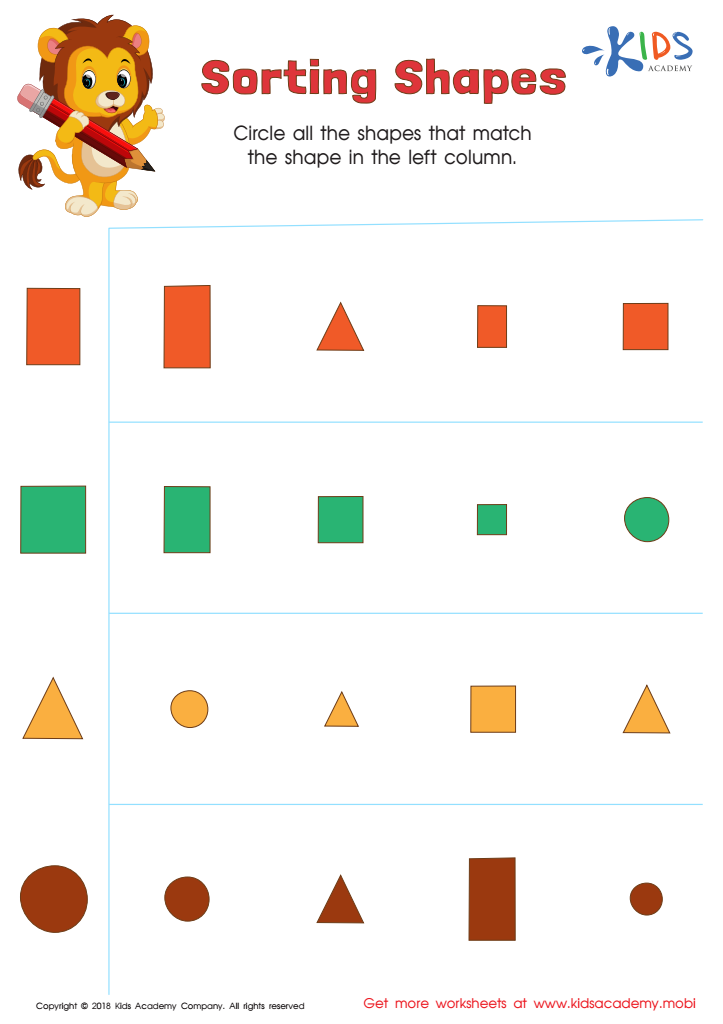

Sorting Shapes - Part 2 Worksheet
Shape recognition is a fundamental skill that plays a crucial role in early childhood development, particularly for 5-year-olds. Understanding 2D shapes is essential as it lays the groundwork for more complex mathematical concepts later on. When children recognize shapes such as circles, squares, and triangles, they begin to build spatial awareness and the ability to categorize objects, which are important cognitive skills.
Parents and teachers should care about teaching shape recognition because it enhances a child’s problem-solving abilities and fosters creativity. By knowing different shapes, children can tackle tasks in geometry and develop visual-motor skills that support writing and drawing activities. Moreover, engaging with shapes helps improve their language skills as they learn to describe sizes, colors, and relationships.
Early exposure to shapes also enables children to make connections with the world around them, as they can identify shapes in everyday objects and environments. This recognition translates into practical experience and enriches their understanding of the universe. By prioritizing shape recognition in learning, caregivers contribute to a foundational ability that promotes logical thinking and lays the groundwork for future learning across various subjects. Overall, encouraging shape recognition fosters cognitive, social, and emotional development, benefiting children's overall growth.
 Assign to My Students
Assign to My Students
